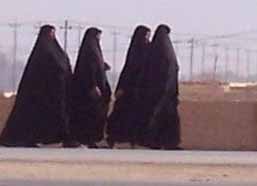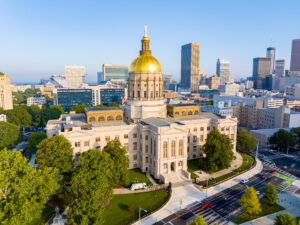
BAGHDAD (BP)–Iraqis turned out in large numbers Jan. 30 for the country’s first democratic elections in 50 years, braving insurgents’ death threats and spurning calls by some of the countrymen for a boycott of the balloting.
According to election officials, turnout among the estimated 14 million eligible Iraqi voters may have eclipsed 60 percent, The New York Times reported. Such numbers would exceed the target of 50 percent set by the interim government.
Violent attacks, however, left 44 dead.
With ballot counting proceeding by hand, preliminary results are expected in six to seven days and final results in about 10 days. Initial reports by The Times, however, indicated that the United Iraqi Alliance, a large coalition of Shiite parties, appeared to have captured more than 50 percent of the vote.
The slate of candidates led by Ayad Allawi, Iraq’s interim prime minister, also appeared to fare well, The Times said.
President Bush praised the elections as a victory for freedom and democracy.
“Today the people of Iraq have spoken to the world, and the world is hearing the voice of freedom from the center of the Middle East,” Bush said Jan. 30.
“In great numbers, and under great risk, Iraqis have shown their commitment to democracy. By participating in free elections, the Iraqi people have firmly rejected the anti-democratic ideology of the terrorists. They have refused to be intimidated by thugs and assassins. And they have demonstrated the kind of courage that is always the foundation of self-government.”
British Prime Minister Tony Blair, one of Bush’s chief allies in the Iraq war, said it was “moving and humbling” to see Iraqi voters risk their lives in some cases to determine their nation’s future.
“It may have been the force of arms that removed Saddam and created the circumstances in which Iraqis could vote, but it was the force of freedom that was felt throughout Iraq today,” Blair said.
“Democracy in Iraq is not just good for Iraq itself. It is also a blow right to the heart of the global terrorism that threatens destruction not just in Iraq but in Britain and virtually every major country around the world.”
Voters chose from among 111 parties for members of provincial parliaments and members of a 275-member national assembly. The national assembly will be empowered to write Iraq’s constitution, which will be approved by a referendum. The referendum will be followed by another round of elections in December.
In heavily Shiite and Kurdish regions, many voters saw the elections as an opportunity to settle a score with former Iraqi dictator Saddam Hussein, the Associated Press reported. In the predominately Shiite neighborhood of Khadamiya in northern Baghdad, for example, the turnout was said to approach 80 percent, The Times said.
Turnout in predominately Sunni areas appeared to be much lower, but voting in the three Sunni-dominated provinces still exceeded initial expectations and in some cases might reach 40 percent, according to various news reports.
In Falluja, a Sunni city that was a militant stronghold until a U.S. assault in November, voters turned out in a steady stream, Reuters reported.
But in other Sunni regions turnout was much lower. No more than 400 people voted in Hussein’s hometown of Tikrit and polling places remained virtually empty in some areas north and west of the capital, according to the Associated Press.
Some fear that a low Sunni turnout could cause election results to be viewed as invalid by some and threatening to foment sectarian strife in Iraq. On the other hand, a substantial Sunni turnout would be regarded as a blow against insurgents, who claim popular support but frequently rely on threats and violence to intimidate Sunnis.
Addressing concerns that Sunnis will be underrepresented in the new government, Allawi told reporters that elected officials will attempt to provide both Sunnis and Shiites with significant roles in the new government.
“Now is a suitable time for us to work together so that the whole world can watch the capabilities of this great country,” he said.
“Starting from today I will begin a new national dialogue to ensure that the voices of all Iraqis are present in the coming government. … As we worked together [Jan. 30] to finish dictatorship, let us work together toward a bright future — Sunnis, Shiites, Muslims and Christians, Arabs, Kurds and Turkmen.”
The death toll of 44 associated with the elections included nine suicide bombers. Most of the attacks occurred in Baghdad, with the Al Qaeda affiliate led by Jordanian terrorist Abu Musab al-Zarqawi claiming responsibility for at least four attacks, the AP reported.
Despite violence, Bush said the elections will move Iraq forward toward stability and democracy.
“The commitment to a free Iraq goes forward,” he said. “This historic election begins the process of drafting and ratifying a new constitution, which will be the basis of a fully democratic Iraqi government. Terrorists and insurgents will continue to wage their war against democracy, and we will support the Iraqi people in their fight against them. We will continue training Iraqi security forces so this rising democracy can eventually take responsibility for its own security.
“There’s more distance to travel on the road to democracy. Yet Iraqis are proving they’re equal to the challenge,” Bush said. “On behalf of the American people, I congratulate the people of Iraq on this great and historic achievement.”
–30–















